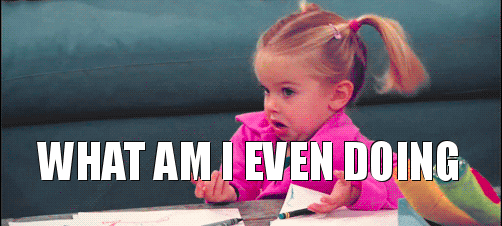UCR’s alumni about transitioning from a UC program to a master at a regular university
Do you believe that there is something more? Do you believe in life after UCR? I mean, I don’t want to be too dramatic here, but around your fifth semester you do start to wonder what life will have in store for you. What do you do when you have managed to complete a bachelor’s program in the most secluded but also vibrant university college in the Netherlands? Feeling new and nervous in your first semester quickly changes to feeling at home, and recognising almost all the faces at your school buildings. People come and people go, and you hear great stories of internships at United Nations or UCR alumni that come back to give lectures about a topic in which they are now doing a PHD. But what happens in between? How does a UCR alumni feel in that period of transitioning from the UCR bubble to a new campus, a new program and a new university? Tabula Rasa contacted several alumni to find out what life is like beyond the bubble.

The first to share their story are Steven Verboom and Sanne Olthof from the Class of 2015. They are now both pursuing MSc Programs at the Wageningen University and Research. Steven recalls his search for a new rhythm very well: “Roggeveenhof room 26a, 2nd week of November 2015, I had just returned from my brief visit to the Future Fair and threw the pile of flyers I had collected onto my messy desk. As per usual, other deadlines had to be met and I did not have any time to waste on going through all those flyers. Yet as the time went by and more papers and stats projects were completed, I found myself (re)discovering the flyers I had previously postponed. Whilst skimming through the flyers I opened my browser, and before I realised it my search for my master program had started… After some laborious experiences with respect to outlining my exact UCR program and sending numerous emails, I found myself accepted to the WUR without a pre-master! Starting at the WUR I was marvelled by the big campus and the high-tech facilities, but as I grew accustomed the impressive sights, the rhythm of life at the WUR started to bother me. I had to adjust to the 9-5 work/study mentality that is the standard for my particular MSc program. This however, also meant that my evenings would be free and I could interact with all the new students that I had met in my classes.”

Steven’s experience shows that, even though sometimes at UCR you may feel like you could use a bit more structure, the other way around is also not quite easy to adapt to. Sanne also told us that the intense amount of contact-hours was a big change for her: “The many contact hours are different from UCR, where you can plan everything in your own time. Most courses have classes and tutorials from 8:30 till 17:15 or later every day. The good side of this is that there is a lot less stress overall and you have your weekends totally free.” Ahhh free weekends, that’s something most of us could only dream of.
Anneleen van der Meer from the Class of 2016 specifically felt like the transition from UCR campus life to a more independent living situation was quite a big change. She misses the openness of Roggeveenhof where you could wander through the hallways and always would bump into people whom you could have tea with. “Now, I have my own little house that I share with another postgrad, and although we have great fun, it’s so different from Roggeveenhof. The ‘Roggie’ hallways are almost like little families, while this life can be a little lonely sometimes. Maybe that’s what it means to be an adult.”
On the other hand, living in a new home with new people can also give experiences like the one Francine de Jager, also from the Class of 2016, told us: “It’s good to be outside of the UCR bubble now, living in a house with students who have a complete different experience of student life. Most of my friends here don’t even study something very academic – they do courses such as costume design, music technology or architecture. This brings a whole new dimension to life, hearing the stories of those who do not have the same academic knowledge or level of critical thinking, those who are not always busy with grades and research papers, it just makes you more aware of what people you will meet in the real world outside of university.”
Marijn Thijs, Class of 2016, also felt that the biggest difference in transitioning from UCR to his new university in Groningen was the social aspect. He noticed a big difference in the effort that you have to put into bonding with new people without living on a campus. “I experienced some sort of culture shock. Whilst studying in Middelburg you may not notice it, but you really get gifted a social life. Moving away from UCR, its community, and the campus also meant putting effort into establishing new relationships with new people – something which comes as a given in Middelburg.”

And what about academics? How did all these alumni experienced entering a new study-environment with their liberal arts & sciences background as compared to other students coming from regular programs? The answer is nearly the same for all of them: you immediately sense a certain difference in skills. Pauliene van Eldik, Class of 2016, who now studies at the University of Groningen said: “Looking at the general level here in Groningen, I dare to say that UCR trains you exceptionally well in preparing presentations, writing papers and critical thinking and for these skills I am very grateful as I still need them on a daily basis.”
Sanne Olthof also noticed that she was more experienced in paper writing and presenting. And Francine de Jager could even add that this difference made her realise that she does have the potential to write a PHD: “I was quite certain I did not want to go into research and do a PhD, because I was so fed up with the pressure for achieving high at all times, and thought I was not good at it. Coming here, I see how much more I have learned at UCR than many people who come from other universities, and how well the education at UCR has prepared me for this MA and doing research in general. Now I am seriously considering doing a PhD, so having this experience of a different university with a different environment has definitely had an impact.”
All in all, it is reasonable to conclude that, yes, there is life beyond the bubble. It may all seem so far away, but it is important to realise that every semester that you take here paves the way for what might come after. In the meantime, we can enjoy our bubble as much as we like. Anneleen van der Meer concludes that: “No one knows real bubbles, except if they’ve been to UCR. But don’t let it frighten you: there will always be opportunities and possibilities in places where you weren’t initially looking. The real world is bigger than academia.”
Gerjanne Hoek, Class of 2018, is a linguistics, politics and history major from Bunschoten-Spakenburg, the Netherlands.
On behalf of Tabula Rasa, we would like to thank all of the alumni who have contributed to this article!
